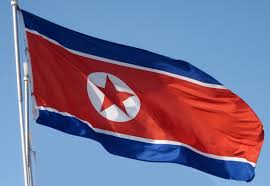Source: IEA
Seems like the DPRK is struggling to find more coal. They are producing more energy than ever from alternate sources, but the transition is not going fast enough. Any more positive explanation for this?
I'm guessing we'll be seeing a reversal of this now that Russia has restarted trade with them.
wish the US stopped existing (or became a shell of its former self like the UK) so that the DPRK could decomission the nukes and recycle them (as nuclear energy) to produce energy from.
actually, how come the DPRK haven't went for nuclear energy for energy production yet?
Few thoughts. I dont see wind and solar on the actual graph even tho its in the key. Is it just very low, or not shown? Also the way there are sharp spikes and then drop off is a bit strange. Makes me think they are using lots of energy doing something that then reduces their energy needs going forward. Perhaps working to make energy use more efficient. Un-networked solar panels on individual homes and buildings are likely not being counted too as it would be very hard to track. Perhaps a move to decentralization of power production?
That makes a lot of sense, and much more than simply producing less energy for no particular reason. And yes, they are just producing very little networked solar/wind energy, it is on the graph.
Don't they have nuclear reactors? Where's the nuclear energy source?
Sanctions. 1990s especially was not a good time for DPRK and Cuba.
But why that sharp decline the last few years? I read somewhere they were setting up solar panels on homes. Maybe this isn't counted towards the total?
in 1990s economic decline elsewhere caused a reduction in energy consumption (similar to Russia and some of the eastern bloc countries) . Not sure about the recent decline.






